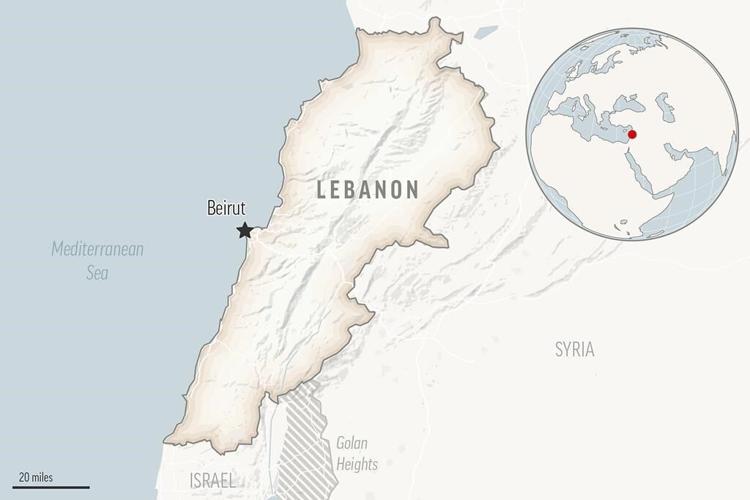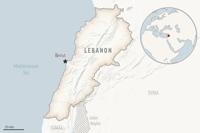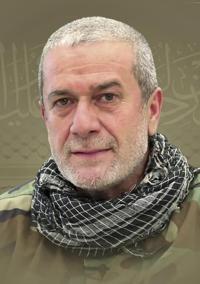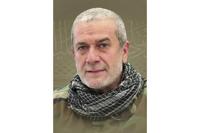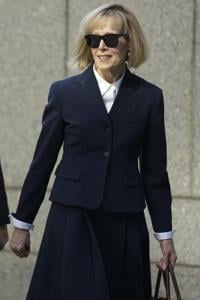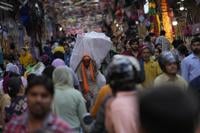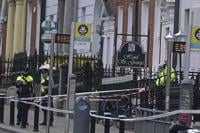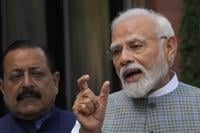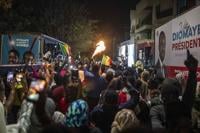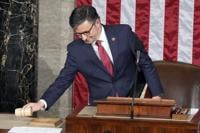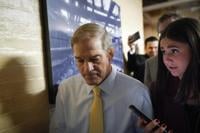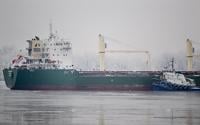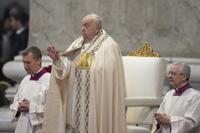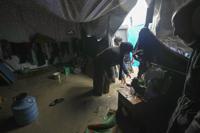BEIRUT (AP) — An Israeli strike in southern Lebanon on Wednesday killed a senior Hezbollah commander as tensions between the two sides continue to boil, a Hezbollah official told The Associated Press.
The strike near the southern coastal city of Tyre took place as global diplomatic efforts have intensified in recent weeks to prevent escalating clashes between and the Israeli military from spiraling into an all-out war that could possibly lead to a direct confrontation between Israel and Iran.
A Hezbollah statement identified the killed commander as Mohammad Naameh Nasser, who went by the name “Abu Naameh,” his nom de guerre. A Hezbollah official speaking anonymously in line with regulations, said he was head of the group's Aziz Unit, one of three regional divisions in southern Lebanon.
Nasser is the most senior official from the Iran-backed group killed , who was killed in an airstrike June 11. Hezbollah leader Hassan Nasrallah in a speech honoring Abdullah said he played a pivotal role on the front line since clashes began on Oct. 8 leading the Nasr Unit.
Hezbollah said in response to the killing of Nasser, it launched Falaq rockets with heavy warheads targeting the headquarters of the Israeli military's 769th Brigade in Kiryat Shmona, as well as 100 salvos of Katyusha rockets targeting the headquarters of Israel’s 210th division and the Kilaa air base in the Israeli-occupied Syrian Golan Heights.
The group also shared footage of Nasser taking part in what they said was an operation at an Israeli military outpost in southern Lebanon in 1999 back when it was under occupation.
In a video circulated by local media, residents rushed toward a charred vehicle with a large plume of smoke. Civil Defense said its first responders transported an unnamed wounded person to a hospital.
The Israeli military acknowledged the attack, saying that Nasser alongside Abdullah are “two of the most significant Hezbollah” militants in southern Lebanon. It said Nasser led attacks from southwestern Lebanon.
Hezbollah launched rockets on northern Israel a day after a Hamas surprise attack on southern Israel in October, leading to limited clashes along the tense border. The attacks have since gradually escalated, with Hezbollah introducing new weapons in their attacks and Israel striking deeper into Lebanon.
The group maintains that it will stop its attacks once there is a cease-fire in the Gaza Strip. Until then, it says it will continue with its attacks to pile pressure on Israel and the international community. Israeli officials have threatened to launch a larger military operation should Hezbollah not stop its attacks.
told The Associated Press in an interview Monday that Israel cannot expect the group's attacks to remain limited should it launch a military operation within Lebanon, even if it aims to keep the conflict below the threshold of all-out war. Allies, including , have offered to join Hezbollah on the front lines.
Israeli airstrikes on Lebanon since October have killed over 450 people, , but the dead also include more than 80 civilians and non-combatants. On the Israeli side, 16 soldiers and 11 civilians have been killed since the war in Gaza began. Tens of thousands of people on both sides of the tense frontier have been displaced in the monthslong war.
Senior adviser to U.S. President Joe Biden, Amos Hochstein, who has been shuttling between Lebanon and Israel, is set to meet with French President Emmanuel Macron’s Lebanon envoy Jean-Yves Le Drian in Paris on Wednesday as part of his ongoing diplomatic efforts to end the conflict.
French officials had invited Hochstein to the French capital to discuss the latest developments in their ongoing diplomatic scrambles, according to administration officials who spoke on condition of anonymity because they were not authorized to comment publicly.
___
Associated Press writers Abby Sewell in Beirut and Aamer Madhani in Washington contributed to this report.

